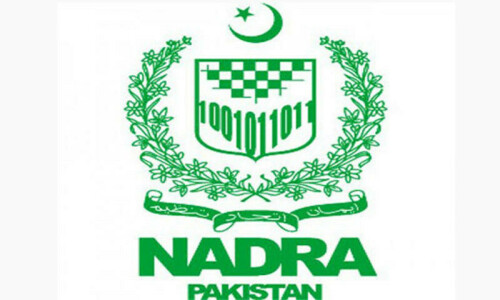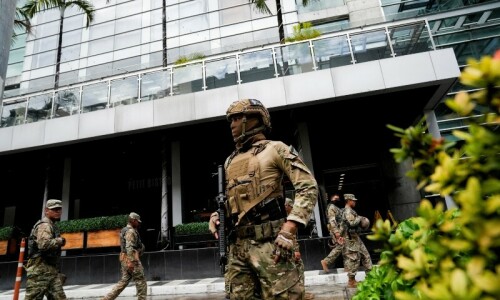WASHINGTON, Feb 22: India and Pakistan “narrowly missed” a historic breakthrough in their three-year long secret negotiations on the Kashmir issue based on “gradual demilitarisation” of the borders, says a report published on Sunday.
The two countries had “come to semicolons” in their negotiations when the effort lost steam in 2007 due to declining political fortunes of the then President Pervez Musharraf.
These details have been documented in an account published by ‘New Yorker’ magazine’s investigative journalist Steve Coll.
The negotiations, which began in 2004, produced the outlines of an accord that would have allowed a gradual demilitarisation of Kashmir, a flashpoint in relations between the nuclear-armed rivals, the publication said.
“The effort stalled in 2007, and the prospects for a settlement were further undermined by deadly terrorist attacks on Mumbai in November,” Washington Post reported quoting the publication.
Mr Coll, a Pultizer Prize winner, says that under the plan, the Kashmir conflict would have been resolved through the creation of an autonomous region in which local residents could move freely and conduct trade on both sides of the territorial boundary.
Mr Coll writes that although Mr Musharraf fought for the deal -- as did Indian Prime Minister Manmohan Singh -- he became so weakened politically that he “couldn’t sell himself”, let alone a surprise peace deal with Pakistan’s longtime rival.
Mr Coll writes that the resolution of the Kashmir dispute was the cornerstone of a broad agreement that would have represented a “paradigm shift” in relations between India and Pakistan: a moving away from decades of hostility to acceptance and peaceful trade.
Under the plan, the Kashmir conflict would have been resolved through the creation of an autonomous region in which local residents could move freely and conduct trade on both sides of the territorial boundary. Over time, the border would become irrelevant, and declining violence would allow a gradual withdrawal of tens of thousands of troops that now face one another across the region’s mountain passes.
“It was huge -- I think it would have changed the basic nature of the problem,” the article quoted a senior Indian official as saying. “You would have then had the freedom to remake Indo-Pakistani relations.”
According to Mr Coll’s account, the secret negotiations consisted of about two dozen meetings in hotel rooms in various overseas locations. The sessions revolved around developing a document known as a “non-paper”, diplomatic jargon for a negotiated text that bears no names or signatures and can “serve as a deniable but detailed basis for a deal”, the article says. The US and British governments were aware of the talks and offered low-key support and advice but otherwise elected to let India and Pakistan settle their disputes unaided, the article says.
The article portrays Mr Musharraf as an enthusiastic supporter of the deal who succeeded in winning converts among the country’s skeptical military leadership. Yet, just as the two countries were beginning to consider how to sell the plan domestically, Mr Musharraf was compelled to seek a delay because of domestic political problems.
Mr Coll observes that after Mr Musharraf’s departure, India-Pakistan relations -- and hopes for resuming the peace initiative -- began a downward slide. In Kashmir, anti-India fighters began an aggressive campaign of public demonstrations and terrorist attacks that seemed designed to send a message: “Musharraf is gone, but the Kashmir war is alive.”
In recent weeks, there have been signs of a modest thaw in Indo-Pakistani relations. Last week, The Washington Post reported that Indian and Pakistani spy agencies have been cooperating secretly in India’s investigation of the Mumbai attacks, sharing highly sensitive intelligence, with the CIA serving as arbiter and mediator. Pakistan has announced criminal charges against Pakistan-based men linked to the attack and acknowledged that some of the planning for the three-day assault occurred in that country.
Yet, in the emotionally charged aftermath of the attacks, the new civilian-led government of Pakistan may not find it easy to return to negotiations on Kashmir, even if it wishes to, the writer notes.
“The military is completely on board at top levels -- with a paradigm shift, to see India as an opportunity, to change domestic attitudes,” a senior Pakistani official was quoted as saying. But, he reportedly added, “the public mood is out of sync.”














































